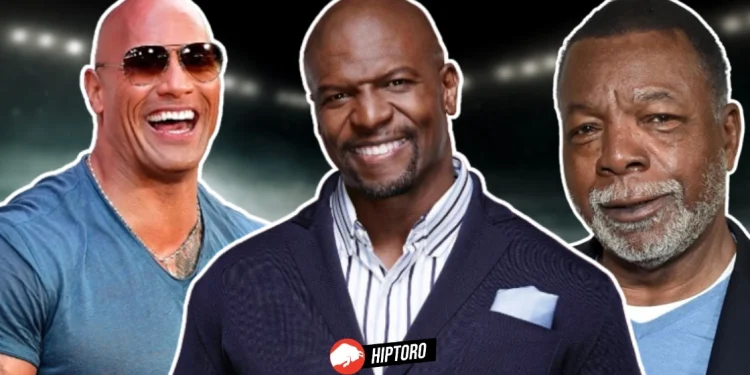From the gritty gridiron to the glitzy glamour of Hollywood, several NFL players have made a seamless transition from the field to the screen. These athletes not only dominated the football field but also carved out successful acting careers, showcasing their versatility and charisma. Here, we delve into the top 10 NFL players who became actors, bringing their larger-than-life personas to the world of entertainment.
1. Dwayne “The Rock” Johnson
The Football Journey
Dwayne Johnson, known globally as “The Rock,” embarked on his path to fame on the football field. Born into a family of professional wrestlers, with his father Rocky Johnson and grandfather Peter Maivia being famous wrestlers, Johnson initially aimed to carve his path in sports.
His athletic prowess was evident from a young age, leading him to play college football at the University of Miami, a powerhouse in collegiate football. As a defensive lineman, Johnson contributed significantly to the team’s success, particularly during their 1991 national championship run.
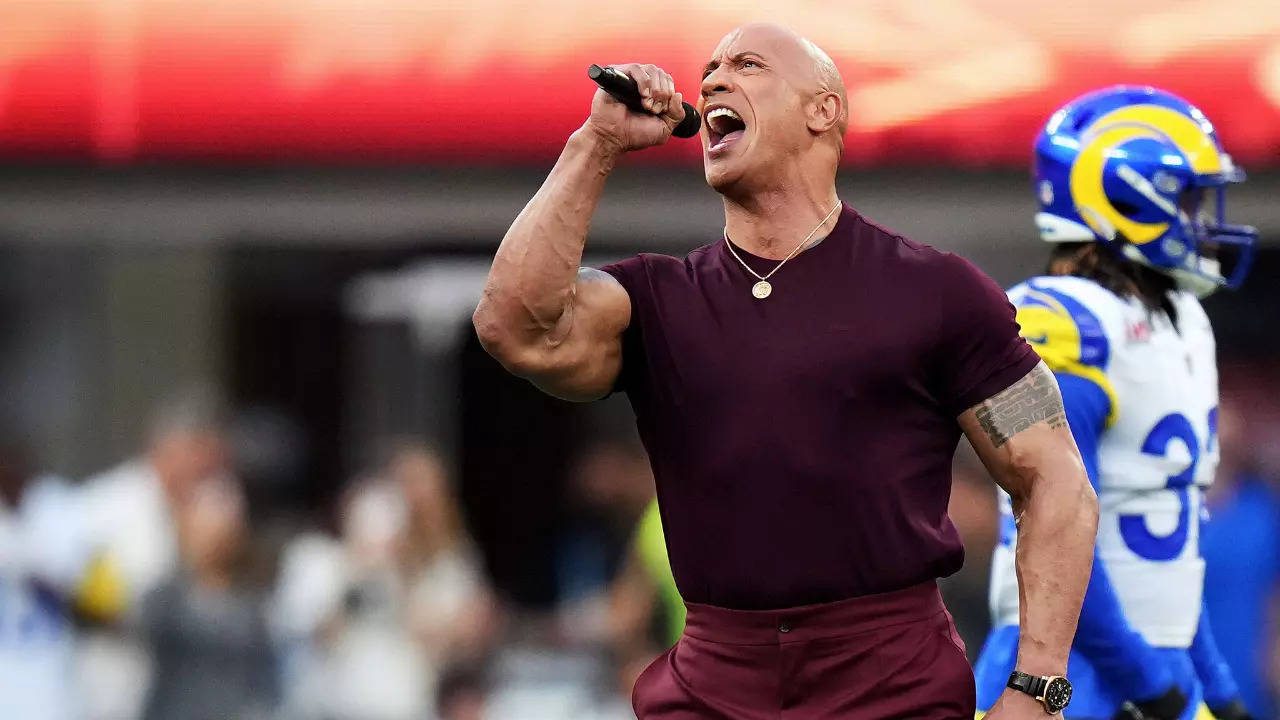
Despite his potential, Johnson’s football career was hindered by a series of injuries. These setbacks limited his playing time and affected his performance, ultimately preventing him from making a lasting impact on the field. After graduating with a degree in criminology and physiology, Johnson signed with the Calgary Stampeders of the Canadian Football League (CFL) in 1995. However, his time in the CFL was short-lived. He was cut from the team just two months into the season, a devastating blow that forced him to reconsider his future.
Reflecting on this period, Johnson has often spoken about the despair he felt, living with his parents and having only seven dollars in his pocket. However, this low point became a turning point in his life, igniting a determination to succeed that would drive his future endeavors. Johnson’s football journey, marked by both achievements and setbacks, laid the foundation for the resilience and tenacity he would later bring to his acting career.
Hollywood Stardom
Transitioning from football, Johnson turned to professional wrestling, entering the world of WWE, where he quickly became a fan favorite under the ring name “The Rock.” His larger-than-life persona, combined with his charisma and catchphrases, captivated audiences worldwide. The success he found in wrestling provided him with a platform to transition into acting.
Johnson’s first major acting role came in “The Mummy Returns” (2001), where he portrayed the Scorpion King. His performance was well-received, leading to a spin-off film, “The Scorpion King” (2002), which solidified his status as a rising star in Hollywood. From there, his acting career took off, with Johnson starring in a variety of genres, showcasing his versatility.
In the “Fast & Furious” franchise, Johnson’s portrayal of Luke Hobbs, a tough-as-nails lawman, brought new energy to the series. His character became a staple, contributing to the franchise’s continued success. In addition to action films, Johnson demonstrated his comedic talent in movies like “Central Intelligence” (2016) alongside Kevin Hart and the “Jumanji” series, where his performance was both humorous and action-packed.
Johnson also lent his voice to the character Maui in Disney’s animated hit “Moana” (2016), earning praise for his vocal performance and musical contributions. His ability to move seamlessly between genres—action, comedy, family films—has made him one of the most versatile actors in Hollywood.
Beyond his on-screen achievements, Johnson has made significant strides as an entrepreneur. He co-founded Seven Bucks Productions, a company that has produced several successful films and television shows. Additionally, he launched Teremana Tequila, which has become highly popular. Johnson’s story, from a struggling football player to a global superstar, is a testament to his perseverance, adaptability, and unwavering work ethic.
2. Jim Brown
The Football Legend
Jim Brown’s football career is legendary, often cited as one of the greatest in the history of the sport. Born in 1936, Brown’s athletic talents were apparent from a young age. He attended Syracuse University, where he excelled not only in football but also in lacrosse, basketball, and track. His versatility as an athlete was remarkable, but it was on the football field that he truly shined.
Drafted by the Cleveland Browns in 1957, Brown quickly established himself as a force to be reckoned with. Playing as a running back, his combination of speed, power, and agility was unmatched. Over his nine-season career, Brown led the NFL in rushing yards eight times and retired as the league’s all-time leading rusher with 12,312 yards—a record that stood for many years.
Brown’s impact on the game extended beyond his statistical achievements. He was known for his durability, never missing a game due to injury, and his ability to perform at a high level in any situation. His influence on the sport was profound, and his dominance on the field earned him a place in the Pro Football Hall of Fame in 1971. Brown’s football career set a high standard for future generations of players, cementing his legacy as one of the all-time greats.

Transition to Acting
After retiring from football at the peak of his career, Brown turned his attention to Hollywood, making a seamless transition into acting. He made his film debut in “Rio Conchos” (1964), but it was his role in “The Dirty Dozen” (1967) that brought him significant attention. In this film, Brown showcased his physicality and screen presence, which made him a natural fit for action roles.
Brown’s acting career was characterized by roles that often took advantage of his imposing physique and commanding presence. In “100 Rifles” (1969), he starred opposite Raquel Welch, breaking ground with one of the first interracial love scenes in Hollywood history. This role highlighted Brown’s ability to push boundaries and challenge societal norms, both on and off the screen.
Throughout the 1970s, Brown appeared in a variety of films, including “Ice Station Zebra” (1968) and “Three the Hard Way” (1974). His roles in these films further cemented his status as a Hollywood star. Brown’s transition from football to acting not only highlighted his versatility but also paved the way for future athletes to consider Hollywood as a viable career option post-sports.
Off the screen, Brown has been an advocate for civil rights and social justice, using his platform to effect change and support his community. He founded the Amer-I-Can program, aimed at helping at-risk youth and ex-offenders, demonstrating his commitment to making a positive impact beyond his athletic and acting careers. Brown’s legacy is multifaceted, encompassing his contributions to sports, film, and society at large.
3. Carl Weathers
The Football Background
Carl Weathers played college football at San Diego State University, where he was a standout linebacker. His athletic skills earned him a spot with the Oakland Raiders in 1970. Weathers’ time in the NFL was relatively short, lasting only two seasons. After his stint with the Raiders, he played for the BC Lions in the Canadian Football League (CFL). However, by 1974, Weathers decided to shift his focus to acting, a decision that would eventually lead to a successful career in Hollywood.
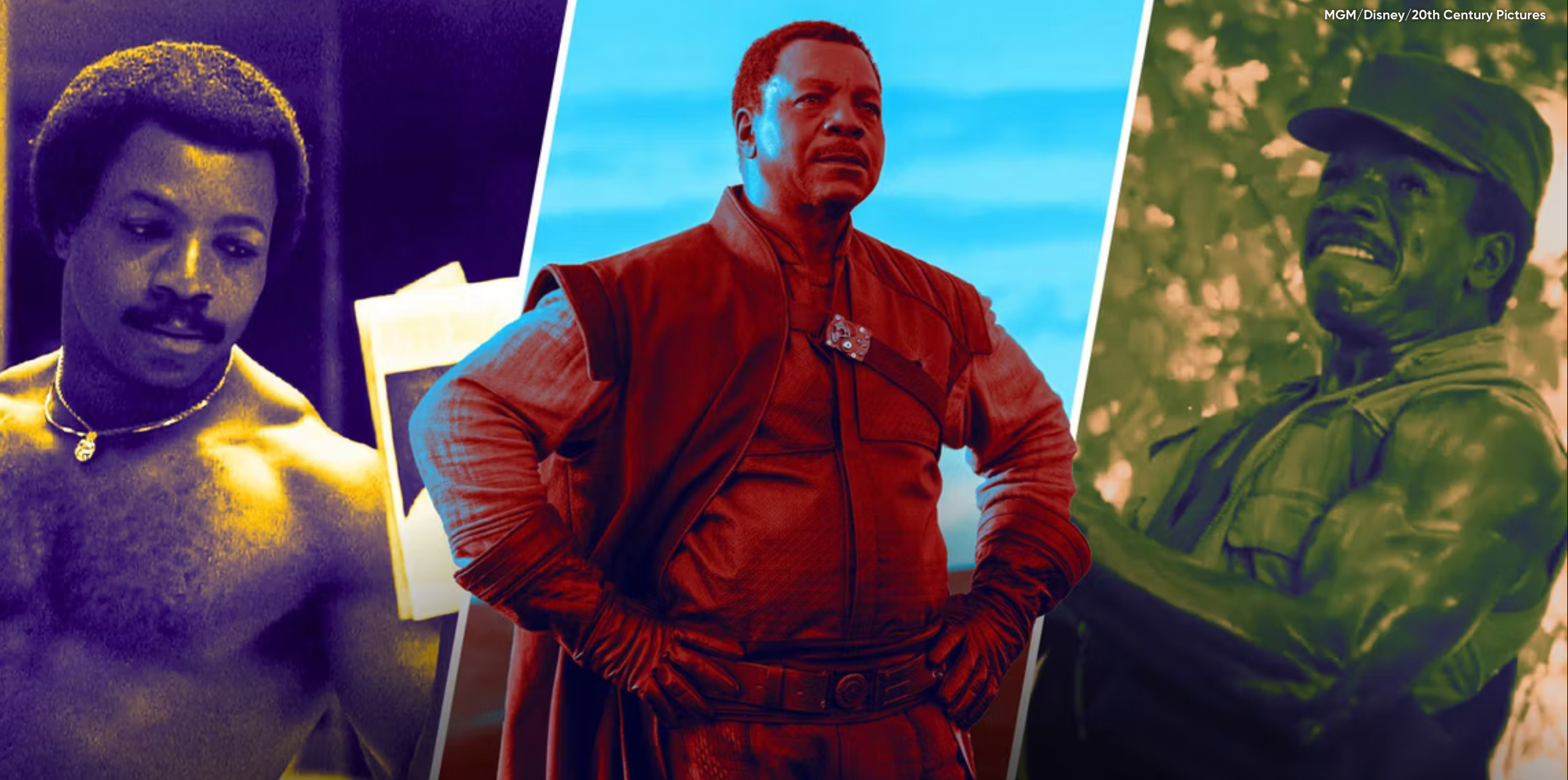
Acting Career
Weathers’ big break in Hollywood came when he was cast as Apollo Creed in “Rocky” (1976). His portrayal of the charismatic and powerful boxer opposite Sylvester Stallone’s Rocky Balboa was iconic and became a significant part of the franchise’s success. Apollo Creed’s character was a crucial element of the “Rocky” series, and Weathers reprised the role in three sequels: “Rocky II” (1979), “Rocky III” (1982), and “Rocky IV” (1985).
Beyond the “Rocky” series, Weathers continued to build a diverse acting portfolio. He starred in the sci-fi classic “Predator” (1987) alongside Arnold Schwarzenegger, further cementing his status as an action star. His role as Dillon, a former Green Beret and CIA operative, showcased Weathers’ ability to hold his own in high-octane action scenes.
In the late 1980s and 1990s, Weathers expanded his range with roles in films like “Action Jackson” (1988), where he played the titular character, and comedies such as “Happy Gilmore” (1996), where he portrayed Chubbs Peterson, a golf pro with a memorable performance that highlighted his comedic timing.
Weathers also made significant contributions to television. He appeared in a variety of TV series, including “Arrested Development,” where he played a fictionalized version of himself, and “The Mandalorian,” where he plays Greef Karga, a character that has become a fan favorite. Weathers’ enduring presence in the industry highlights his talent and adaptability, making him a standout figure among athletes-turned-actors.
4. Terry Crews
The Football Years
Terry Crews’ football career began at Western Michigan University, where he played as a defensive end and linebacker. Drafted by the Los Angeles Rams in 1991, Crews went on to play for several teams, including the San Diego Chargers, Washington Redskins, and Philadelphia Eagles. His NFL career spanned from 1991 to 1997, during which he became known for his strength and athleticism.
Despite his skills on the field, Crews faced the uncertainty and instability that often accompany professional sports careers. He supplemented his income by painting portraits of his teammates, a side hustle that showcased his artistic talents. After retiring from the NFL, Crews faced the challenge of finding a new career path, ultimately turning to acting.
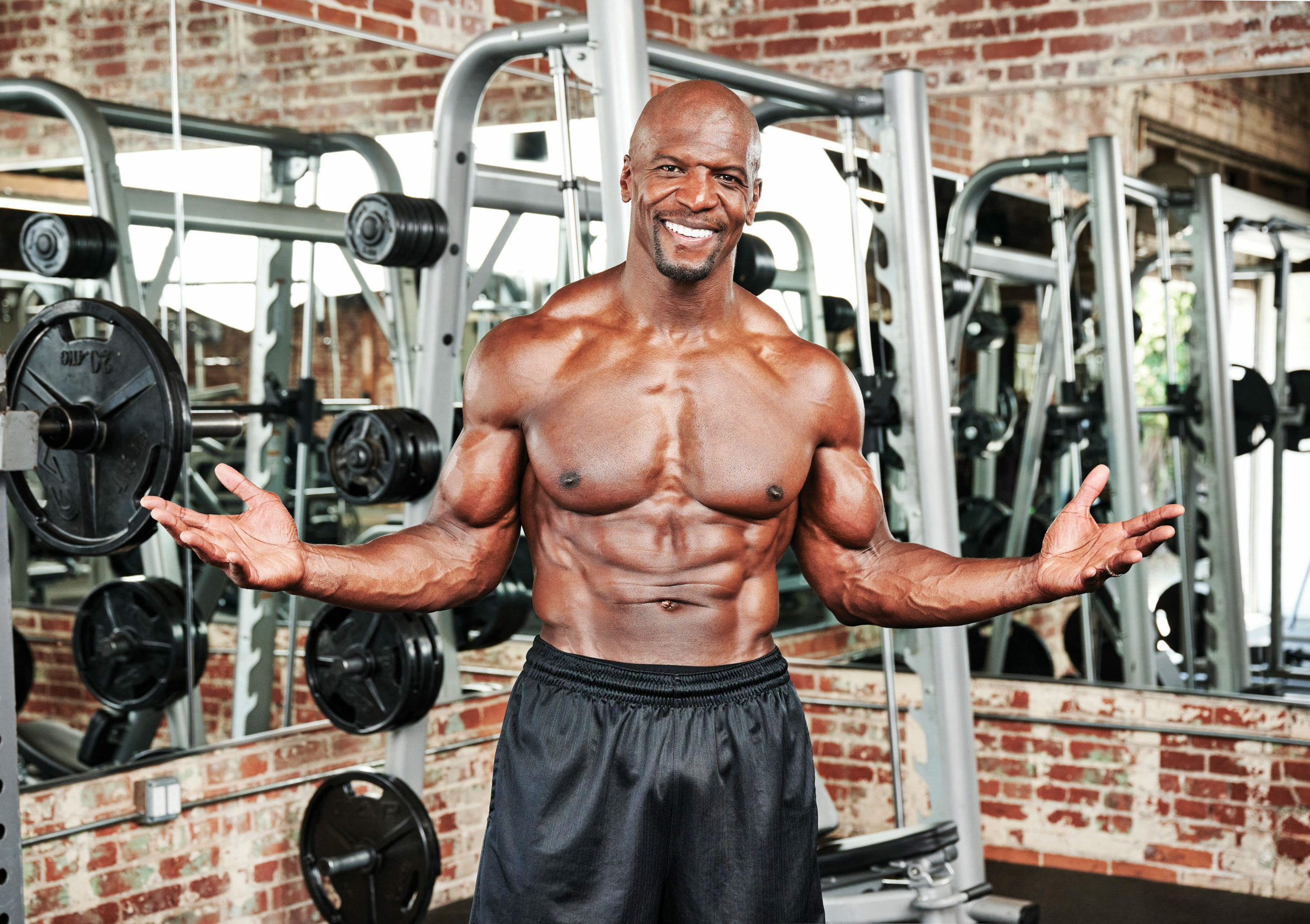
Rise in Hollywood
Crews’ transition to acting began with small roles in films and television. His breakthrough came with the comedy series “Everybody Hates Chris” (2005-2009), where he played the strict but loving father, Julius. This role showcased his comedic talent and led to more significant opportunities.
Crews is widely recognized for his roles in comedies like “White Chicks” (2004) and “The Longest Yard” (2005). His performance in “Brooklyn Nine-Nine” as Terry Jeffords, a devoted family man and dedicated police officer, has earned him critical acclaim and a loyal fan base. His character’s strength and sensitivity resonated with audiences, making Crews a beloved figure in the show.
Beyond acting, Crews is known for his advocacy work, particularly around issues of masculinity and abuse. His openness about his experiences has made him a respected voice in Hollywood, adding depth to his public persona. Crews’ journey from the football field to Hollywood highlights his versatility and resilience, demonstrating that success can be achieved through determination and adaptability.
5. O.J. Simpson
NFL Fame
O.J. Simpson, nicknamed “The Juice,” was one of the most celebrated football players of his time. Born in 1947, Simpson’s athletic talents were apparent from an early age. He attended the University of Southern California (USC), where he became a standout running back. In 1968, Simpson won the Heisman Trophy, awarded to the most outstanding player in college football, solidifying his status as a top prospect for the NFL.
Simpson was drafted by the Buffalo Bills in 1969, where he quickly made a name for himself. Known for his explosive speed and agility, Simpson set numerous records during his career. In 1973, he became the first player to rush for more than 2,000 yards in a single season, a remarkable achievement that remains a highlight of his career. Simpson’s performance on the field earned him a place in the Pro Football Hall of Fame in 1985.
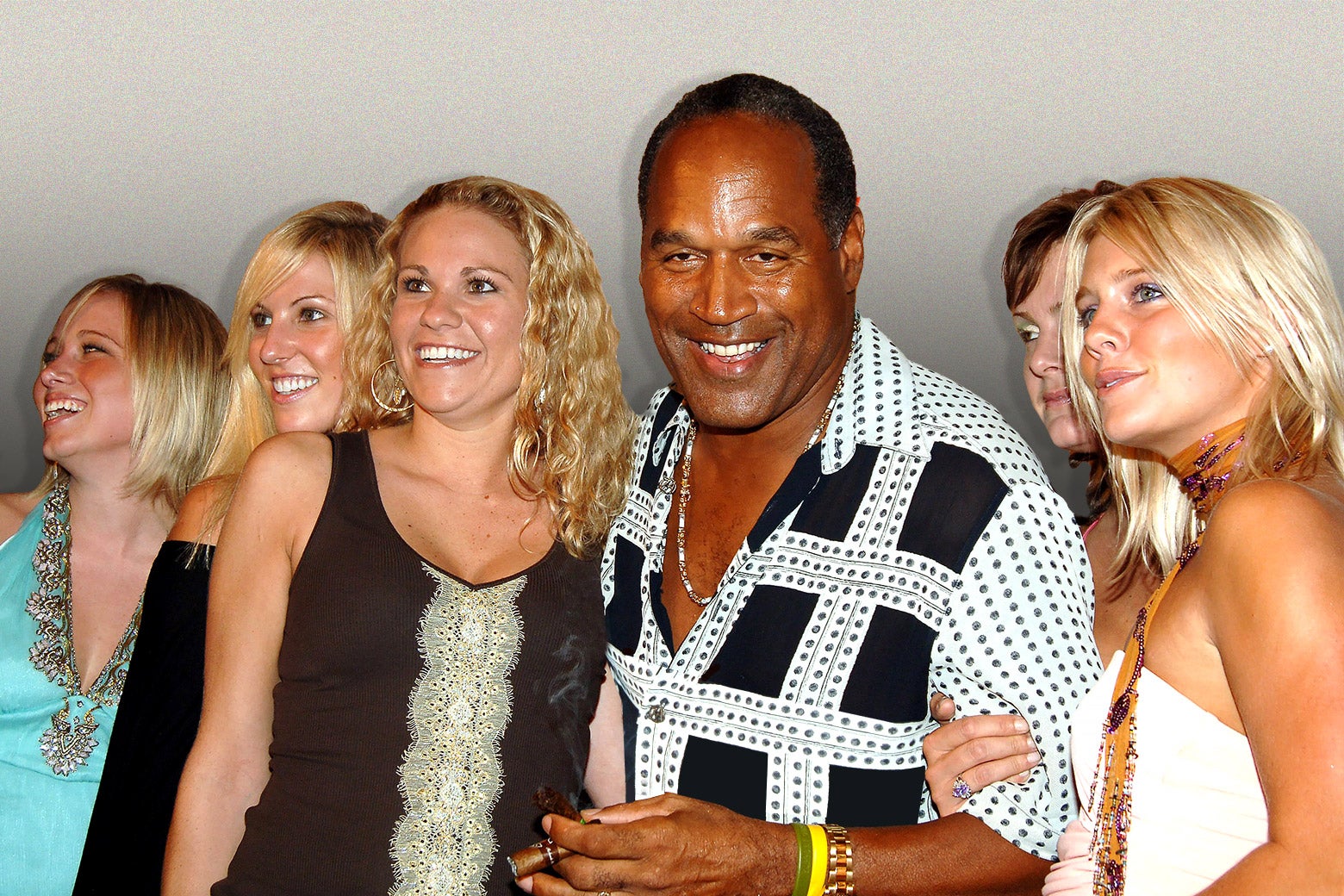
Acting and Legal Troubles
Simpson’s acting career began while he was still playing football, with roles in films like “The Towering Inferno” (1974) and television series such as “Roots” (1977). After retiring from football, he continued to pursue acting, landing a memorable role in the “Naked Gun” series, where he played the bumbling Officer Nordberg. Simpson’s comedic timing in these films was well-received, adding another dimension to his public persona.
However, Simpson’s acting career was overshadowed by his infamous legal troubles. In 1994, he was charged with the murders of his ex-wife Nicole Brown Simpson, and her friend Ronald Goldman. The trial, often dubbed “The Trial of the Century,” ended in his acquittal, but the case left a lasting impact on his legacy. Despite being found not guilty, many believed Simpson to be culpable, and the trial remains one of the most controversial and publicized in American history.
In 2007, Simpson faced further legal issues when he was convicted of armed robbery and kidnapping in Las Vegas. He was sentenced to 33 years in prison, of which he served nine before being granted parole in 2017. Simpson’s later years have been marked by legal battles and public scrutiny, overshadowing his earlier achievements in football and acting.
6. Fred Williamson
The Gridiron Life
Fred Williamson, known as “The Hammer” for his tough playing style, played as a defensive back in the NFL and AFL. Born in 1938, Williamson attended Northwestern University, where he excelled in football and track. His skills on the football field earned him a place in the NFL, where he played for the Pittsburgh Steelers, Oakland Raiders, and Kansas City Chiefs. Williamson was known for his strong defensive skills and his charismatic personality, both on and off the field.

Hollywood Career
Williamson transitioned to acting in the 1970s, becoming a prominent figure in the Blaxploitation genre. His roles in films like “Black Caesar” (1973) and “Hell Up in Harlem” (1973) made him a standout actor in this period. Williamson’s portrayal of tough, street-smart characters resonated with audiences and established him as a leading man in the genre.
In addition to acting, Williamson ventured into filmmaking, directing, and producing several films. His work behind the camera has been influential in creating opportunities for African-American actors and filmmakers. Williamson’s contributions to the industry have been significant, helping to pave the way for greater diversity and representation in Hollywood.
Williamson’s career in Hollywood has been marked by a steady stream of roles in both film and television. His enduring presence in the industry highlights his talent and adaptability, making him a notable figure among athletes-turned-actors.
7. Alex Karras
Football Stardom
Alex Karras was a formidable defensive tackle for the Detroit Lions, known for his strength and toughness. Born in 1935, Karras attended the University of Iowa, where he was a standout football player. He was drafted by the Detroit Lions in 1958, where he played for 12 seasons. Karras’ football career was briefly interrupted by a suspension for gambling, but he returned to finish his career on a high note.
Karras was known for his aggressive playing style and his ability to dominate on the defensive line. His contributions to the Lions’ defense were significant, and he earned a reputation as one of the most feared defenders in the league. Karras’ football achievements earned him a place in the College Football Hall of Fame in 1991.

Acting Success
Karras found success in acting after his football career, starting with a memorable role in “Blazing Saddles” (1974) as Mongo, a lovable brute. His performance in this comedy classic showcased his comedic talents and endeared him to audiences. Karras’ ability to transition from the rough-and-tumble world of football to the nuanced world of acting is a testament to his diverse talents.
Karras later starred in the popular TV series “Webster” (1983-1989), where he played George Papadapolis, the adoptive father of the title character. His role in “Webster” highlighted his versatility as an actor and helped to establish him as a beloved figure in television. Karras’ acting career, like his football career, was marked by memorable performances and significant achievements.
8. Ed Marinaro
NFL Background
Ed Marinaro had a successful college football career at Cornell University, where he set numerous records as a running back. Born in 1950, Marinaro was a standout player in college, finishing second in the Heisman Trophy voting in 1971. His performance in college football earned him a place in the College Football Hall of Fame.
Marinaro played in the NFL for the Minnesota Vikings, New York Jets, and Seattle Seahawks. His NFL career spanned from 1972 to 1977, during which he was known for his versatility and athleticism. Marinaro’s contributions to the teams he played for were significant, and he was respected by his peers for his skills on the field.
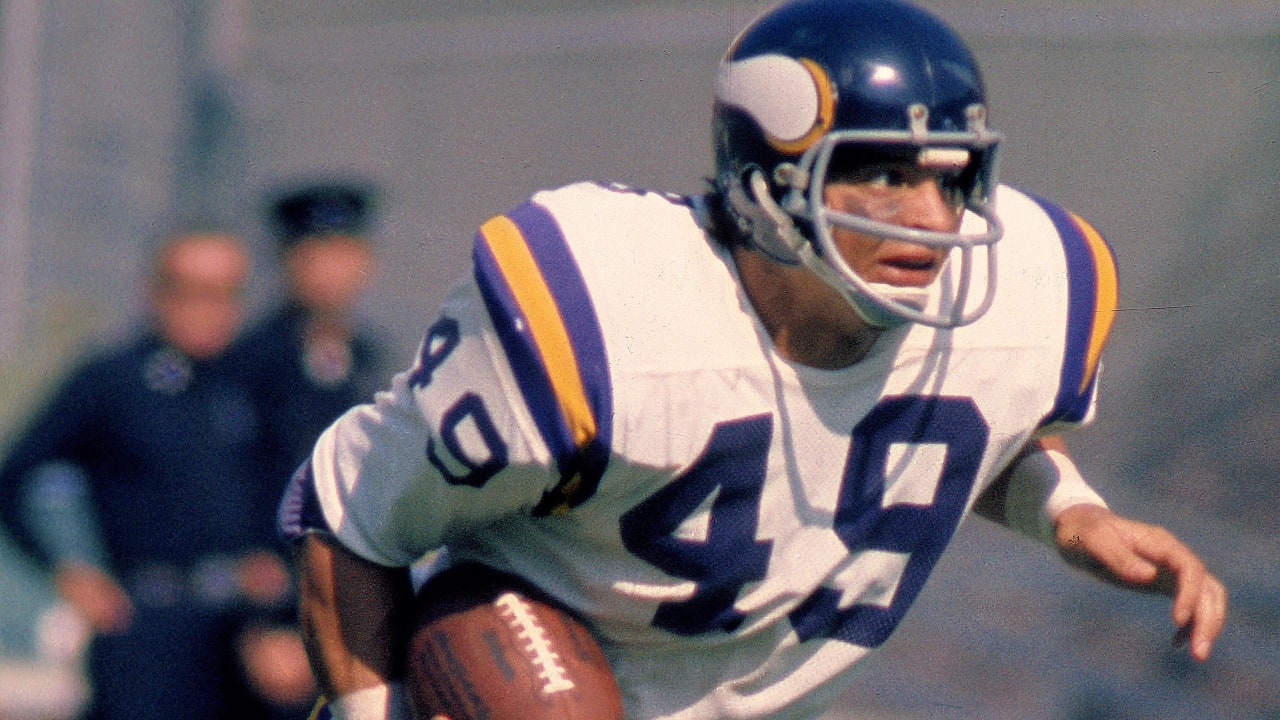
Transition to Acting
After retiring from football, Marinaro pursued an acting career. He is best known for his role as Officer Joe Coffey in the critically acclaimed TV series “Hill Street Blues” (1981-1987). His performance on the show earned him a dedicated following and showcased his acting skills. Marinaro’s ability to transition from professional sports to acting was marked by his talent and dedication.
Marinaro has continued to act in various television series and films, maintaining a steady presence in Hollywood. His journey from the football field to the screen highlights his versatility and commitment to his craft.
9. John Matuszak
NFL Career
John Matuszak, known for his larger-than-life personality, played as a defensive lineman in the NFL. Born in 1950, Matuszak was a standout player in college before being drafted by the Houston Oilers in 1973. He also played for the Kansas City Chiefs and Oakland Raiders, where he won two Super Bowl titles. Matuszak was known for his aggressive playing style and off-field antics, which made him a memorable figure in the NFL.
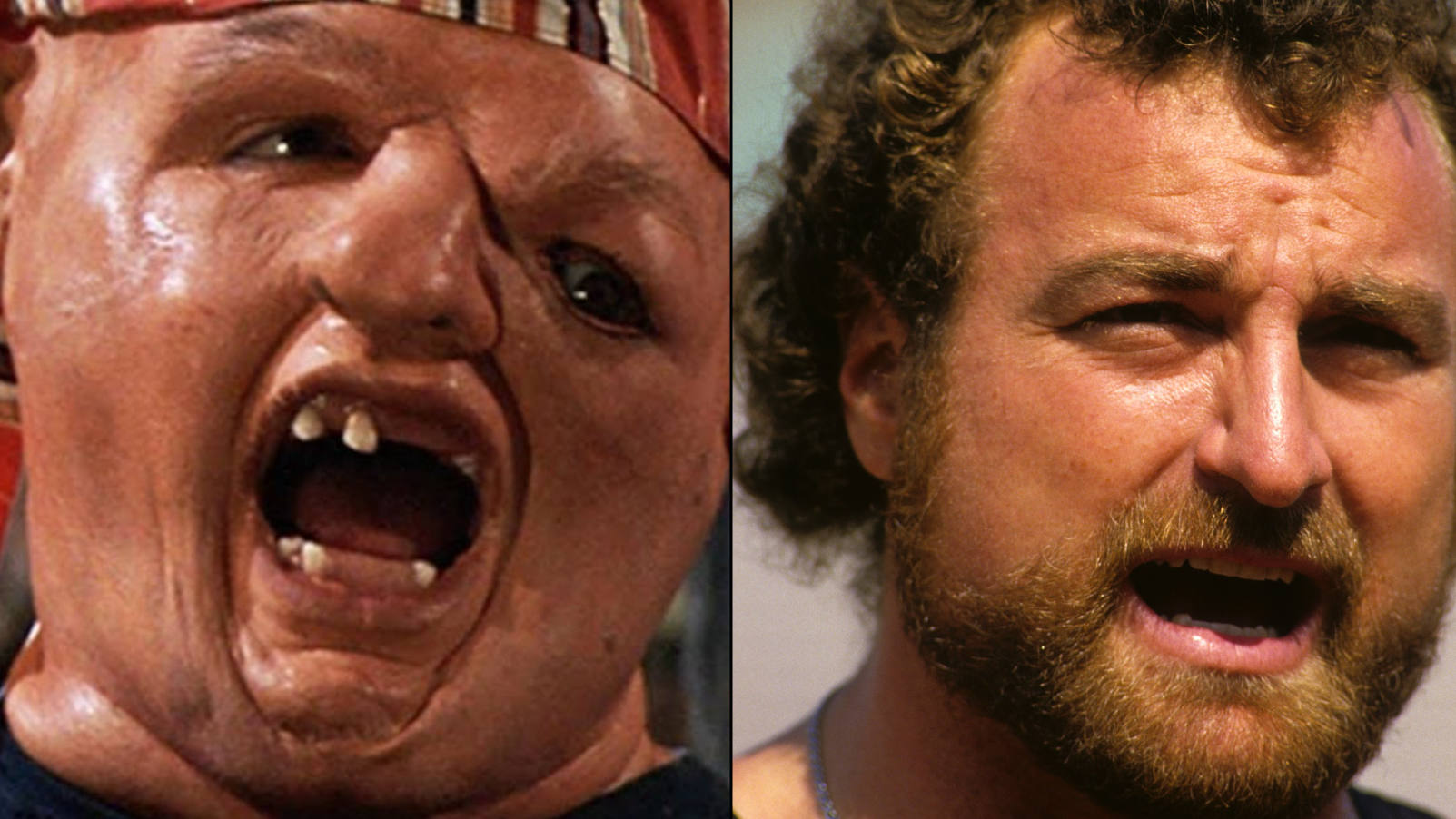
Acting Career
Matuszak’s acting career included a variety of roles in film and television. He is best remembered for his role as Sloth in the cult classic “The Goonies” (1985), where his performance made a lasting impression on audiences. Matuszak also appeared in films like “Caveman” (1981) and TV shows such as “MAS*H” and “The Dukes of Hazzard.” His transition from football to acting was marked by his unique ability to bring his larger-than-life persona to his roles.
Matuszak’s journey from the gridiron to Hollywood highlights his ability to adapt and succeed in different fields. His memorable performances and distinctive presence have left a lasting legacy in both sports and entertainment.
10. Bubba Smith
Football Achievements
Bubba Smith was a dominant defensive end in the NFL, playing for the Baltimore Colts, Oakland Raiders, and Houston Oilers. Born in 1945, Smith was a standout player at Michigan State University, where he earned All-American honors. He was drafted by the Baltimore Colts in 1967 and quickly made a name for himself as a formidable defender.
Smith’s NFL career was marked by significant achievements, including being a key player in the Colts’ victory in Super Bowl V. Known for his size and strength, Smith was a dominant force on the defensive line. His contributions to the game earned him a place in the College Football Hall of Fame.
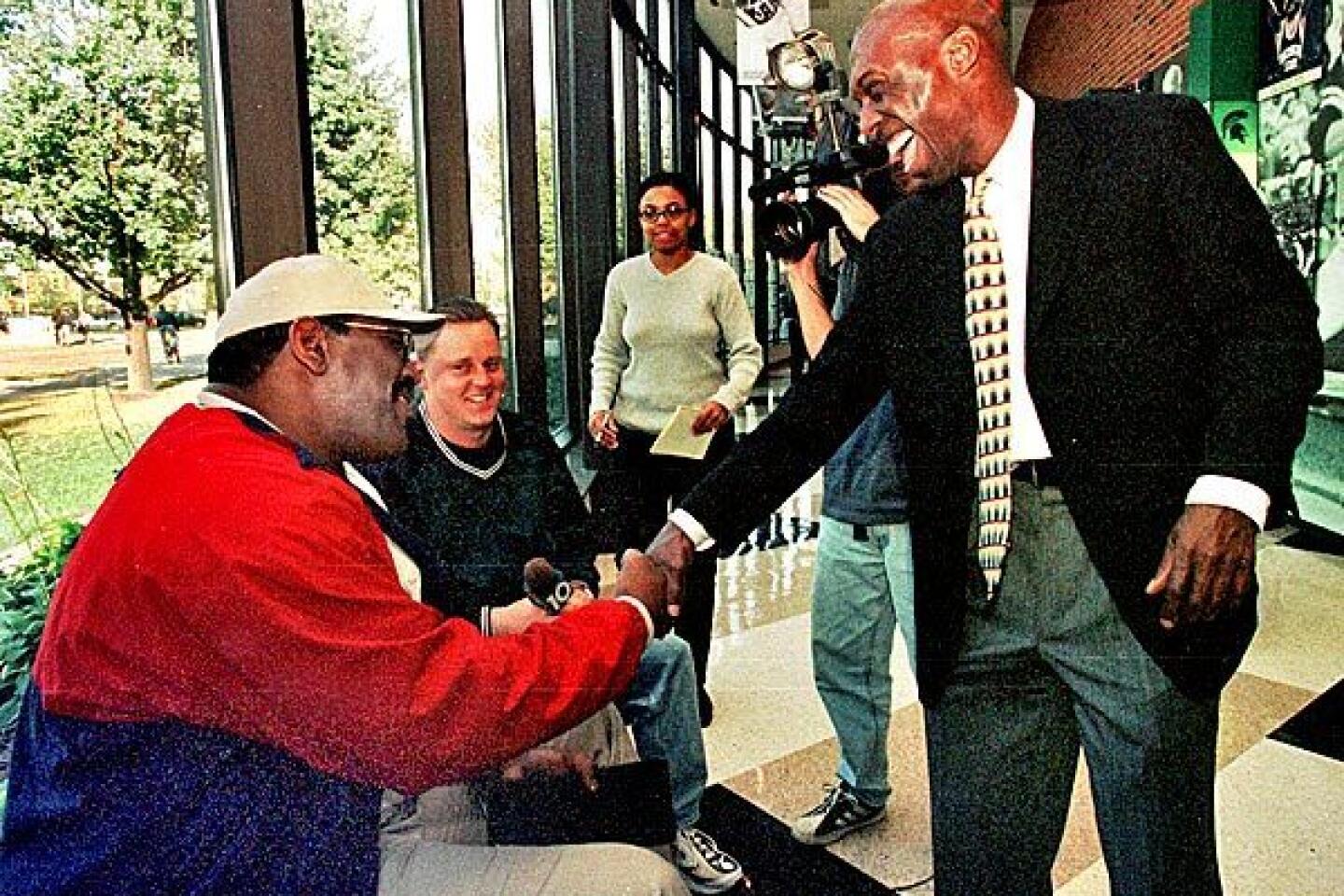
Acting Career
Smith transitioned to acting with memorable roles in the “Police Academy” series, where he played Moses Hightower, a gentle giant with immense strength. His comedic timing and physical presence made him a standout in the series. Smith also appeared in TV shows like “Good Times” and “Blue Thunder,” showcasing his versatility as an actor.
Smith’s ability to transition from a fearsome football player to a beloved comedic actor highlights his diverse talents and enduring appeal. His contributions to both sports and entertainment have left a lasting impact, demonstrating that success can be achieved through talent and determination in multiple arenas.


